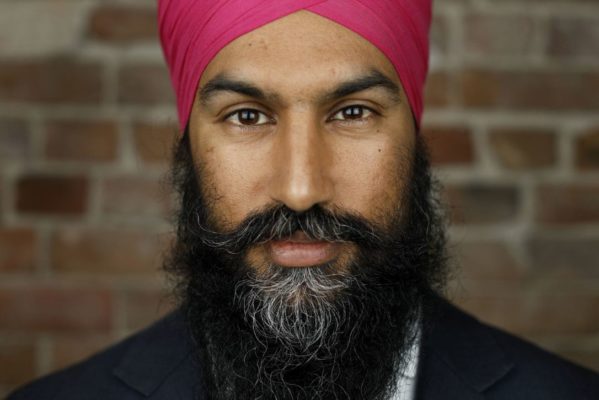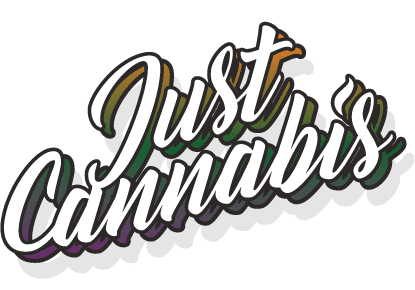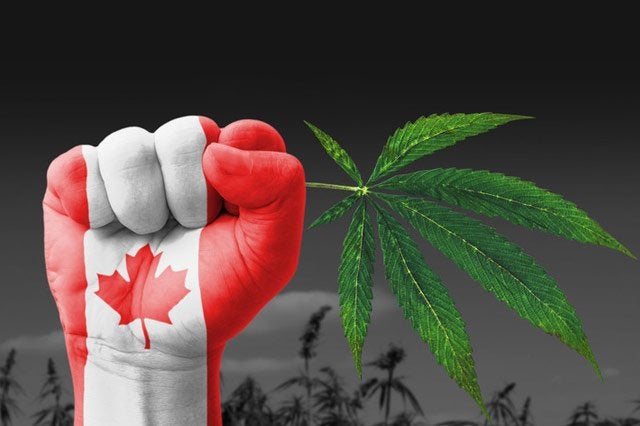Law and Politics
The Flawed Plan for Canadians’ Cannabis Criminal Records
As of this month, cannabis has been legalized in Canada for a year. For many of us Canadians, it has felt like weed has been legalized for years. During the last decade, people could walk in off the street in Vancouver and buy cannabis from the store like they were buying ice-cream or ordering a sandwich. Initially, there may have been a bit of performative red tape, requiring you to speak to a ‘doctor’, usually over Skype, who would suspiciously enough always prescribe medical cannabis…
Beyond that though, cannabis was essentially legal for many Canadians. People could be seen smoking on a busy downtown street alongside cigarette smokers without anyone batting an eye, except maybe in the hopes they’d be offered a hit.
Point of Privilege
This was the experience for myself and plenty of other Canadians. This, however, was not the reality across Canada. To be honest, I was naive enough to believe that my experience was a shared one for users across the country. I was sorely mistaken.
Even within the city I that I live in, Indigenous cannabis users were 7 times more likely to be arrested for cannabis offenses, all non-violent. When I learned this I was embarrassed. Embarrassed by my city for its continued oppression of people of colour, particularly Indigenous people, but mostly embarrassed by myself for believing all was well because I had my weed and my only bad experiences until that time were due to the dispensary not accepting my debit card.
I have been smoking cannabis for over 15 years now. Not once have I had a negative experience with the police, despite my bold-faced public cannabis consumption. I thought I was invincible or just really sneaky perhaps. It turns out there was an entire system of privilege at play that I had never bothered to acknowledge prior to learning these statistics.
History of Racial Prejudice
The targeting of racial minorities through the mechanism of cannabis prohibition is not a new concept. Until the early 1900s, Cannabis was considered no different than many other plants. When an influx of Mexican immigrants in the early 1900s caught the attention of conservative lawmakers, they made the conscious decision to create a public association between cannabis users and what they considered ‘unwanted’ Mexican immigrants. They started calling it ‘Marihuana’, despite having called it cannabis for years prior. This decision was an intentional move made by the government to associate cannabis use with new immigrants. In future weeks, I will be writing a blog exploring the ‘Racist History of Cannabis Laws’ as it deserves its own article entirely. What’s important to note is that cannabis laws were initially put in place with xenophobia playing an instrumental role. The use of cannabis as a tool to arrest minorities has existed for over a hundred years, and as long as people like former US Attorney General Jeff Sessions are in power, it will continue to be used accordingly.
When looking at Canada, the history leading up to legalization was not much better. Despite an incredibly rocky start, business is now slowly but surely improving for many licensed companies and with edibles and other extracts set to roll out this month, things should only improve in the legal cannabis industry.
The Federal Approach
Now, since the beginning, the federal government’s approach to legalization has been carried out through the guise of keeping children safe. Prime Minister Justin Trudeau says he does not want his kids to consume cannabis which is why he has legalized it… Let that logic sink in. Give it a minute. It may take a while.
Despite this bizarre albeit supposed moral stance, this has not stopped cannabis products from being taxed heavily, because, hey, why not make money off the public menace you are keeping your kids safe from?

It was reported this week by BNN Bloomberg that the cannabis industry added $8.62B to Canada’s GDP. Incredible that such a dangerous substance could stimulate our economy!
Knowing now, how the government has willingly put their support behind cannabis commerce (if the money is right), not to mention legalizing it in the first place, one would be justified in assuming this represents a complete shift, if not a total 180 on their view of cannabis and therefore cannabis users.
Superficial Solution
The federal government would like to have you believe this is the case, and they have done so by announcing what critics, myself included, are calling a flawed process that would allow those who have been charged with cannabis possession (the very same plant they are now all too happy to tax) to have their charges pardoned. At first glance, this may seem like a victory for those whose lives have been impacted by a criminal record for a now legal plant, but the truth is the act by the federal government’s decision is perfunctory at best.
As Annamaria Enenagor, director of Campaign for Cannabis Amnesty explained to the CBC, a pardon is no more than a suspension of these charges. This means that the charge is not removed permanently from the person’s record, but rather that it is put on hold, opening the possibility of it being reactivated by future governments. Furthermore, the charges are still viewable by certain government agencies. Not to use semantics and logic when it comes to government policy, as that’s like using reason and compassion when pleading with a swarm of bees, but how on earth is a charge pardoned if it can, not only still be found by various agencies, but activated again at the will of future administrations?
The Federal government has tried to cover their shame by explaining that expunging records were for laws that were unconstitutional and should never have been on the books in the first place. Does the very act of reversing the government’s approach to the legality of cannabis not mean that it should never have been on the books? Is there an air of uncertainty? Is this a pilot program?
No. The law changed. So why do so many people, many of them people of colour, still have criminal records for cannabis possession?
Forgetting the Cultivator and Distributor
The federal government’s policy only applies to those with simple possession charges. It does not include anybody charged with cultivating and distributing, even if that is the only substance they were ever found with. Again, not recognizing and acknowledging the error of their ways, and instead licensing new inexperienced growers and distributors of the same product all the while keeping the veterans of the industry in the shadows, their records untouched, still carrying the burden of criminal charges for a now legal substance. This lack of logic is dizzying and to call it frustrating would not give it enough credit.
The Federal government has been criticized for rushing legalization. From Indigenous communities, municipal governments, police and even members of the cannabis community, countless people spoke up, explaining that more time was needed to enact policies and standards in order for legalization to be a success.
Many asked ‘why not decriminalization?’. If the Prime Minister’s true fear was helping people avoid criminal charges, why not decriminalize cannabis while policies are put in place. Well, we can only guess. Critics would be quick to point out that you cannot tax decriminalized but unregulated cannabis…

The NDP have announced their intention to expunge the records of cannabis users, allowing them to thrive in society without a criminal record following them around. As it stands, the NDP doesn’t have much of a chance in this election, falling back a great deal from the heights reached by late leader Jack Layton, which saw the NDP as the official opposition for some time. For years the NDP was the only federal party taking legalization seriously. There are many who criticize the Prime Minister for seizing the opportunity to help his political career, rather than out of a sincere concern about its prior legal status.
Two-Party System is, in Fact, Not A Party
This means the upcoming election comes down to the incumbent Justin Trudeau of the Liberal Party of Canada or Andrew Scheer of the Canadia Conservative Party. While many people have been unhappy with some of the Liberal party’s decisions over the last 4 years, not to mention Justin’s inability to avoid controversy around every corner (seriously dude, stop), Andrew Scheer is likely going to be worse for cannabis and its users.
Scheer actively voted against legalizing cannabis and when pressed, took a long time to determine that he, in fact, did not intend to criminalize cannabis again “but we will see what happens within the year and make necessary corrections.” When looking at the Conservative party’s previous attitude and behavior when it came to cannabis legislation, it does not exactly instill a sense of hope that the corrections Scheer is looking to make will actually benefit users, but likely instead will make it harder for micro-growers to obtain a license, allowing for a monopoly by companies that didn’t even consider cannabis until they saw dollar signs.
SNC-Lavelin and Double Standards
There was a recent event that has taken place in Canadian politics that may actually shine a light on the federal government’s view of cannabis laws. If you have been living in Canada for the last year than you have likely heard about the SNC-Lavelin affair. For those who might need a refresher, the Prime Ministers Office was accused of corruption, specifically obstruction of justice. SNC-Lavelin was due to face charges and Trudeau and his team are accused of pressuring then Minister of Justice and Attorney General Jody Wilson-Raybould into offering a deferred prosecution agreement that would essentially help SNC-Lavelin avoid criminal charges.
I do not bring this up hoping to convince you one way or the other. I bring it up to highlight the hypocrisy in action within Canada’s highest office. If the accusations against the Prime Minister are to be believed, then it raises the question of where his priorities lay. His defenders would say that he is trying to protect Canadian jobs, as SNC-Lavelin would be unable to bid on projects, that would otherwise offer a lot of Canadian’s work if criminally prosecuted. Can the Prime Minister not recognize the threat these charges hold, even if suspended, against Canadian jobs? As long as certain agencies can find a criminal record, then nothing has been dealt with. It has just been pushed aside for now.
Even if one was to remove the argument that the Prime Minster’s Office was attempting to save jobs, the very idea that he is more invested in helping large corporations rather than cannabis users with their criminal charges is concerning. You might say that is a slight red herring but you tell me where you think his priorities lay. His actions do not match his words. Bucking the trend set by so many politicians before him, Trudeau proudly discusses his cannabis use and says he does not regret it. He said he actually wanted to legalize it to help avoid criminal charges for users. Despite this, his party has chosen to help only those charged with possession and will only go as far as to suspend their charges.
What We’ve Learned
So let’s take what we know and try and make sense of it. Cannabis was legalized to protect children. But it was also legalized to make sure nobody else was charged for cannabis. That makes sense. However, we learn that the government is only willing to help those who have been charged with simple possession, and only to a certain point. Is there some evidence out there that suggests anyone and everyone that has a cultivating or distributing charge is guilty of dealing with minors?
If that is who we are trying to protect, where is the line that connects these two roles to children? Obviously, there were dealers who sold to minors but that does not open the door to generalize the entire profession as willing to sell to children. There are licensed liquor stores that have been caught selling alcohol to minors. Is it right to assume all stores are willing to do so? How about when looking at police violence. Would it be just to assume all police are racist because there is an undeniable history of racist policing? No. The same goes for those charged with cannabis distribution and cultivation. Unless there is direct evidence showing that they were willing to do business with a minor, why should they not be granted the same rights to clear their names?

Research and Choose the Party that Represents YOU
I want to be very clear. I did not write this in support of any one political party.
I debated publishing it prior to the election as I am not writing this to support any one candidate.
My intention is not to turn voters away from the Liberal party. In fact, I fear some may interpret it as such. When looking at the two parties leading the race, there are no innocents. No side has clean hands and the Conservatives track record when it comes to cannabis is far more egregious. Andrew Scheer has shared support for the idea of pardons, meaning cannabis users will not have any more of a friend in the Conservatives than they do the Liberals.
I am writing this because as a country, we have to recognize the injustice being done to our brothers and sisters.
I am writing this because for so long I viewed cannabis from a place of immense privilege, without ever taking a second to consider, if my fellow Canadians were being given the same treatment.
I ask simply that you inform yourself about the options. The election is creeping upon us. Whoever you choose, make sure that they represent what you believe in. If you, like me, believe that this drawn-out process that simply puts a bandaid on users, cultivators, and distributor’s records, rather than fixing them is unacceptable than let your elected leader know how you feel. Many would argue our electoral system is a shell of true democracy, where each person’s vote does not hold the same power as the next’s. Use what voice you do have to speak out.
The Canadian government has voted on and decided that cannabis is legal. It is time that people’s lives reflect that, rather than carrying a draconian black mark on their record that only works to hurt their future. The government is happy to tax cannabis. How about freeing its users first? That means fully expunged records, not suspensions that only work to pander to the public without requiring any real action on a federal level.









